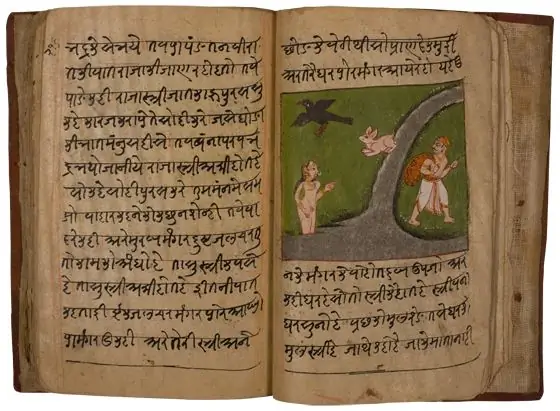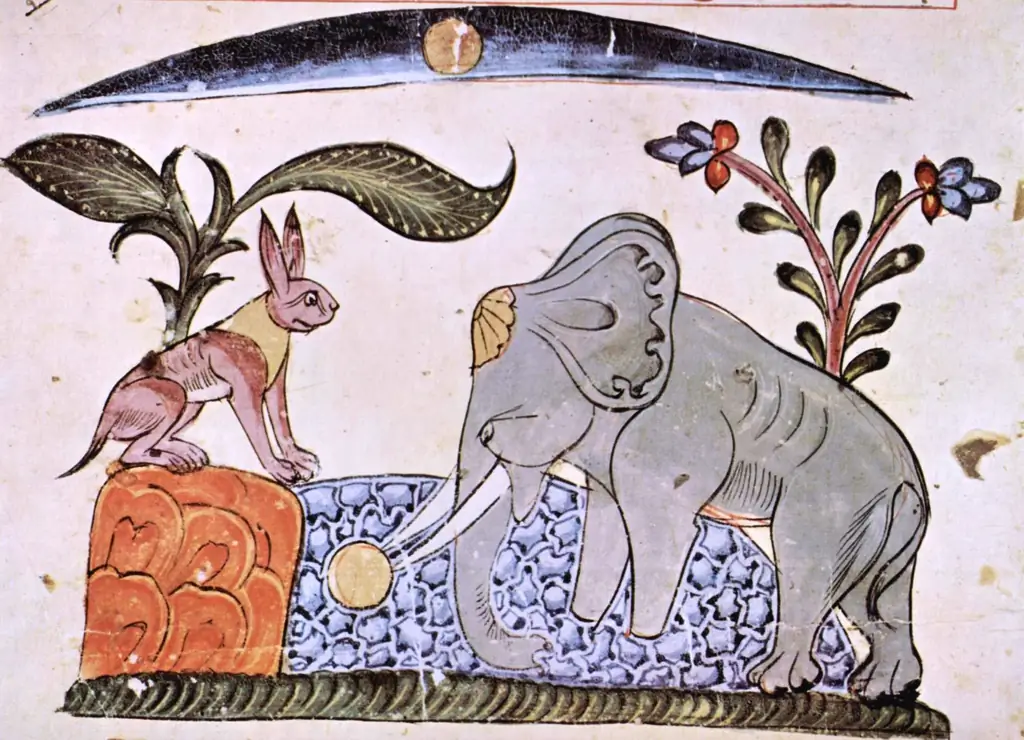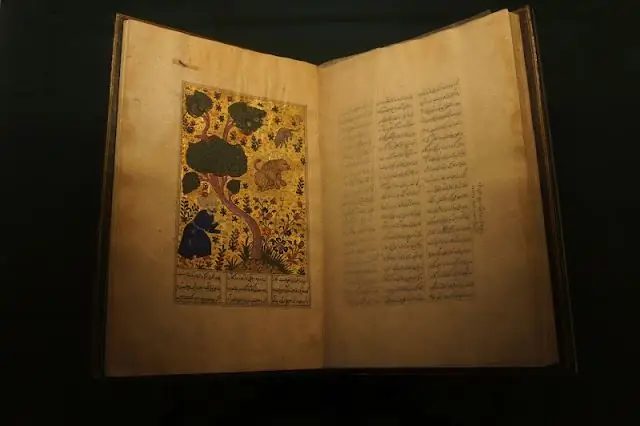- Author Antonio Harrison [email protected].
- Public 2023-12-16 07:44.
- Last modified 2025-01-22 21:44.
Panchatantra is a unique book born on Indian soil. This is a collection of stories, short stories, parables, fables and verse sayings that help to live. Any person, even those far from India, gets colossal aesthetic pleasure from reading and leaves himself the lines by heart, reinforcing his personal life experience.


"Panchatantra" (translated from Sanskrit "Pentateuch") is instructive in nature, but advice on how to behave is supported by specific examples, clothed in the form of short stories, parables and fables. For example, the fable about a snake that hides in a hole for fear of falling into the hands of a snake charmer. Advice in the form of a metaphor - not to bring out your hidden dark thoughts and disgusting deeds, acquires the features of naive realism. Another example in the form of poetic edification recommends avoiding both stupid and insidious people:
Do not give advice to a fool:
he will be enraged by your prompting.
Do not drink milk for a snake:
only the poison will replenish the supply.
History of creation
The history of the "Panchatantra" is still a mystery. Scholars disagree on where and by whom this literary work was written. Some, in particular Vyacheslav Vsevolodovich Ivanov (linguist and semioticist, 1924-2005), argue that the Panchatantra was created during the heyday of Ancient India, when the Gupta dynasty ruled from 350 to 450. AD The scientist believes that the authorship belongs to the Vishnuite brahmana Vishnusharman. Vishnusharman is the pseudonym of the brahmana who compiled the collection. Igor Dmitrievich Serebryakov (Indologist, Sanskritologist, 1917-1998) believes that the Panchatantra in the form in which we read it today was written in 1199 by the Jain monk Purnabhadra. The book is written in Sanskrit.
In the eleventh century, the Panchatantra began its journey around the world. It was first translated into Syriac, then into Greek, then into Italian. In the twelfth century from Arabic to Hebrew and Persian, from there in the thirteenth century to Latin.
One of the original texts is kept in Mumbai at the Prince of Wales Museum.

Wise advice
The modern text of the Panchatantra contains over 1100 poetic inserts.
Tips can be found for all occasions. For example, to the question: "Is it worth deceiving loved ones?" the book answers simply and gracefully:
With a friend, with a wife, with an old father
do not share your truth entirely.
Without resorting to deception and lies, tell everyone whatever is appropriate.
The Panchatantra warns about the danger of encountering unfriendly people with the following lines:
Where they do not rise to meet us, where there are no welcome speeches -
don't show up yourself
and don't take your friends there!
An ancient collection of wisdom teaches to value and cherish friends. A whole fable about a mouse, a raven, a deer and a turtle is dedicated to this, as well as a quatrain:
Only the one who has the power to curb passion, who remembers only good, forgetting evil, ready to give my life for a friend, when the grief really came.
If a person is faced with a dilemma to answer or not to the attacks of ill-wishers, you can use one of dozens of tips on this matter:
Where to resort to battle -
no trace of reconciling … Voditsa
do not sprinkle, until they sweat, on those who burn in the fire.
Panchatantra recommends taking an active life position in order to achieve success:
The person will achieve his plan
courage and indomitable struggle.
And what is called fate on earth, in the human soul is laid invisibly.
Since "Panchatantra" was written primarily for the children of rulers in order to teach them to rule wisely, it would not be superfluous for modern Russian politicians to keep on their desk a collection of wise advice, time-tested. For example, this is what the book says about those with whom you should not surround yourself with a leader:
When advisers are not flattered by bribes, reasonable, loyal, loyal to their country, -
then the lord need not be afraid of enemies:
he is a winner even without a war!
The uniqueness of "Panchatantra" also lies in the fact that it is not divorced from life, but is born of life itself and the people of India, his observations of the behavior of people and animals, his work. This book celebrates common sense and therefore remains modern, useful and relevant.






